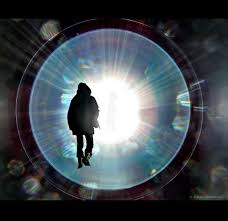
One approach to spiritual practice is to tune into your “high-road” vision—your deepest aspiration for your life. From there, you begin to explore what obstacles are preventing you from living that vision, and removing them one-by-one until your life is your vision.
Say your vision is to live creatively, simply and soulfully. After many years of trial and error, you’ve found your calling through playing the violin with a modern twist. You are good at what you do. However, you still have a lame day job, a few destructive habits, a difficult relationship with anxiety, and some bad relationship patterns you can’t seem to break free from.
While everything isn’t all roses, there’s a lot of data you’ve already collected. You know your vision. You know some of your biggest obstacles. You’ve actually come very far, and the rest of it is just a matter of time—be courageous and take a risk.
However, a lot of people don’t really know their “high-road vision.” And, for some, it’s fairly abstract, like wanting to be happy. When asked how they will become happy, they don’t have a strong sense of what that means, or what obstacles need to be removed to get there.
In other words, when not knowing your vision is one of your big obstacles, what to do?
There’s really only one good answer: trial and error.
You can’t think your way to figuring out your vision. Likewise, you can’t just do all the same things over and over, and expect your vision to magically come to you.
You have to shake the dust. You might have to buy one-way plane tickets. Start over. You might have to take up 10 new hobbies and discard 9 of them. You might have to switch jobs. You might have to read books, have conversations with people of different backgrounds, travel, or step way outside your comfort zone.
Even more importantly, you have to trust yourself.
If you try something new and it’s working, trust that! If you try something new and you feel like it has something for you, then trust that! Many, many people have their vision stifled by feeling like what they’re doing is a no, but not having the courage to try something different.
For myself, the trial and error process has led to many painful experiences of putting my soul into things for years, thinking they were my path, only to realize they weren’t. I’ve recovered. Looking on the bright side, I see those “errors” as some of the best things that every happened to me. They paved the way for a vision that really feels true.
Actually, my vision is still being refined—everyone is always refining their vision. The trial and error process never ends. So you’re in good company, along with all seven billion of us.
Stay courageous!
